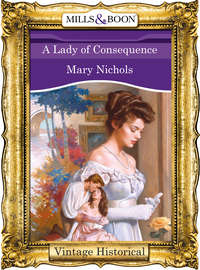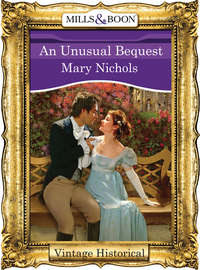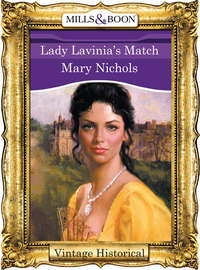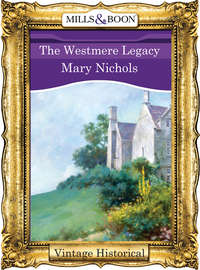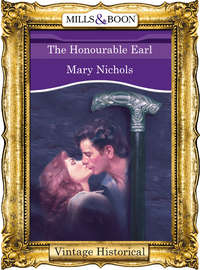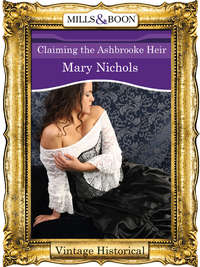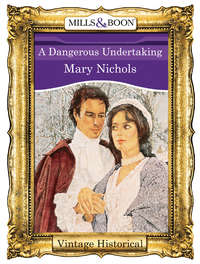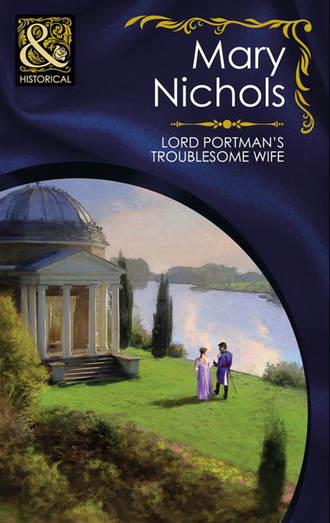
Полная версия
Lord Portman's Troublesome Wife
Those of the Dustin Gang who had been apprehended were brought into court and ranged in the dock. There was Alfred Dustin, his wife Meg, their twenty-four-year-old daughter, Matilda, and her husband, Bernard Watson. All were charged that ‘they not being employed at the Mint in the Tower, nor being lawfully authorised by the Lord High Treasurer and not having God before their eyes, nor weighing the duty of their allegiance to our lord, the King, and his people, did between the first day of May and the tenth in the year of our Lord seventeen hundred and sixty-one, feloniously and traitorously forge and counterfeit forty coins of pewter in the likeness of silver shillings and sixpences’. They all pleaded not guilty.
The first witness was the landlady of their lodgings who had gone into their rooms to clean them when they were out and had found a mould filled with chalk, some clay pipes, much burned, and two sixpences, which had been stamped on one side but not the other. When Bernard Watson came home she had taxed him with her finds and he had admitted to her that he was counterfeiting and had shown her how the coins were made.
‘He had a mould,’ she said. ‘It was filled with chalk and had an impression of a sixpence in it. He poured in pewter, which he had heated in a tobacco pipe over the fire. He said good-quality pewter was best and he obtained it by cutting up a tankard. When the piece was taken from the mould he nicked it with a clean tile to mill the edges, then he scoured it with sand to make it look bright. Lastly he put it into a pot of water boiled with a powder he called argol to make it look silver.’
‘What did you say to this?’ the judge asked.
‘I told him I would have none of it and they must all find other lodgings.’
‘You lie,’ Bernard Watson protested. ‘I never made a false coin in my life.’
The woman turned to the judge. ‘Your honour, as God is my witness, I tell you true.’
‘Then what happened?’ the prosecutor urged her.
‘He said he would pay me well to pass the coins off when I went shopping, but I refused and said they must all leave.’
‘And did they?’
‘I left the house and went to fetch a constable. When I brought the constable back, they had packed up and gone and taken all the sixpences with them.’
The constable was called next and told the court that he found nothing except a broken-up pewter tankard and the bowl of a pipe with a residue of pewter in it. He saw no counterfeit coins.
‘God, I do believe the rascals will get off,’ Ash murmured.
‘Patience,’ Harry responded, flicking invisible fluff from his sleeve.
‘Where did they go?’ the prosecutor asked the witness.
‘They went to a house in White Lion Street. I got the address from a man at the Nag’s Head, who heard them speak of it. I went there with Constable Bunting and we broke down the door and found them all gathered to make coins.’
‘I suppose you were the man at the Nag’s Head,’Ash whispered to Harry.
‘Shh,’ Harry warned him, smiling.
Other witnesses were called to corroborate. Their defence that they were making buttons and buckles to sell in the market was thrown out. Alfred, Meg and Bernard were sentenced to hang; Matilda’s plea that she was not aware her parents and husband were doing anything but making buttons was accepted and she was set free. She left the court vowing vengeance against whoever had ratted on them.
Harry and Ash did not wait to hear the next trial, but made their way out to the street and comparative fresh air. ‘I did not know it was so easy to make false coins,’ Ash said. ‘But surely the profits are minimal.’
‘Not if you make enough of them. Take a counterfeit shilling or even a sixpence to a shop to buy something for a ha’penny or a penny and receive the change in good money and you soon make a tidy profit. Usually the coiners employ what they call passers-off to go into the country with a supply of bad coins with which they buy goods needing change.’
‘Not worth the candle,’ Ash said.
‘Not for such as we are, but for the lower sort a welcome supplement to low wages and, for those with no work at all, better than starving.’
‘The young woman was very angry. Do you think she will try to carry out her threat?’
‘She has no idea who turned them in.’ He paused. ‘They are small fry. The really big profits come with clipping gold coins, but for that you need to be supplied with real coins to make a start and it is altogether on a more lofty plane. That is what I’m going after next.’
‘What have you discovered?’
‘Not a great deal as yet, but I was handed a clipped guinea at the wine merchant’s the other day. It had been used to purchase wine. Unfortunately he could not remember who had passed it to him. He has promised to let me know as soon as he sees another one.’
‘You can’t do it more than once in the same shop, surely?’
‘It depends how observant the shopkeeper is. And if the rogue thought he had got away with it he might be tempted to try again.’
They had been walking back towards St James’s as they talked and turned into White’s and the subject of coiners and, indeed, of crime in whatever form was dropped in favour of playing cards. Harry drank and gambled in moderation; he found that men in their cups often let fall titbits of information that helped him in his work for the Piccadilly Gentlemen. And there was nothing to go home for. He could attend soirées, routs and balls, he was always a welcome guest, simply because of his title, wealth and unmarried status, but he became tired of gushing mamas throwing their daughters in his way. He found himself reiterating that he had decided not to marry again, but that did not stop them trying to change his mind.
He could, of course, find one of the hundreds of ladies of the night to amuse him for an hour or two, but he had always found paying for that dubious pleasure distasteful. He went frequently to the theatre and enjoyed supper with the cast afterwards, but there was a limit to the number of times he could view one play, especially if it were not particularly well done. It was easier to spend his evenings at one or other of his clubs.
A four was made up by Benedict Stafford and Sir Max Chalmers. Benedict was a pimply youth of no more than twenty, heir to a Viscount who kept him on short commons, which everyone knew. Harry had never met Sir Max, but he was well dressed in sober black, relieved by silver embroidery and a white lace cravat, matched by the froth of lace emerging from his coat sleeves. With his sharp nose and chin and thin legs, he reminded Harry of a magpie.
‘You have the devil’s own luck,’ Stafford complained several hours later when Harry scooped up his pile of winnings. ‘Unless you take my voucher, I can play no more.’
‘Naturally I shall accept your voucher,’ Harry said, using the high-pitched voice of the fop, though he drew the line at a lisp. ‘But if you have scattered too many of them about, I wonder when I might be paid.’
Benedict laughed. ‘That I cannot tell you, but you are in no hurry, are you? I believe you to be prodigious high in the instep.’
‘So I may be, but neither am I a fool.’ He was idly looking at the coins he had won as he spoke, but not so much by a flicker of an eyelid did he betray the fact that one of them was clipped. He wondered which of the players had put it there and if he was aware of what he had done. The trouble was that it was easy to pass clipped guineas without realising it; they had once been genuine and their only flaw was that, after clipping, they were smaller and weighed less than they should. He put it in his pocket. ‘I like a man to pay his debts.’
‘Then I withdraw,’ Benedict said huffily. ‘Any other man would demand satisfaction for that slur on his honour.’
‘I am relieved you do not,’ Harry said, smiling lazily. ‘I abhor violence.’
‘I will toss you the dice for my share of the pot,’ Ash told the young man. ‘If you win, it will give you the stake to go on playing.’
‘And if I lose?’
‘I will take your voucher.’
‘Agreed.’
The card game was suspended while the dice were called for. Harry spent the time studying his playing companions. Benedict was a young fool, wanting to impress, to be counted a man about town, but he would not have the stomach for passing counterfeit guineas. Max Chalmers was different. He was thirty or thereabouts, not ill looking, though his expression was surly. His clothes were well made and his powdered wig one of the best; a vain man, he decided, then chuckled secretly at himself for his own pretensions.
‘Allow me to offer condolences and congratulations, Chalmers,’ Ash said while they waited. ‘I believe you have recently come into your inheritance.’
‘I thank you, though there is little enough to salvage and I am left with an unmarried sister to provide for.’
‘Is that such a burden?’
‘It would not be if our father had not invested foolishly and left no portion for her. My wife is not over-fond of her and is reluctant to offer her a home.’ He sighed. ‘If only I could find her a husband. You do not know of anyone requiring a wife, do you?’
Ash looked meaningfully at Harry, who frowned at him, but he took no notice. ‘What can you say in her favour?’
‘Not a great deal,’ Max said gloomily. ‘She is twenty-six and not beautiful, but I suppose you could say she has a good figure…’
‘Why does your wife not like her?’ Harry demanded.
‘She is too opinionated.’
‘Mmm, a bad trait indeed,’ Harry said. ‘Is that why she has never married?’
‘It could be. But she has been housekeeper to our father since our mother died. To give her her due she is very good at it. The house always ran like clockwork. That is half the trouble—if she comes to our house, she will want to impose her own ideas…’
Harry laughed. ‘Then you have a problem, my friend.’
‘Marry her off,’ Ash said.
‘So I would, if I could find someone to take her.’
‘Is she healthy?’ Ash persisted in his questioning.
‘Never had a day’s illness in her life.’
‘It seems to me,’Ash said thoughtfully ‘that your contention that she has little in her favour is false. She is a good housekeeper, can hold her own and is healthy enough to bear children. Is she particular as to a husband?’
Max laughed. ‘She cannot afford to be.’
‘You mean she would agree to a marriage of convenience?’
‘If one were offered, I think I could persuade her.’ He paused, realising he might have sounded unfeeling. ‘Of course, I would not let her to go any Tom, Dick or Harry…Oh, I beg your pardon, Portman.’
‘Granted.’
‘I would wish to know she would be dealt fairly with, not kept short of pin money or treated like a skivvy,’ Max went on. ‘She is, after all, a lady. Our family can trace its lineage back to Tudor times.’
‘Dowry?’ Ash asked, ignoring the kick Harry gave him under the table.
‘Alas! There you have me.’
Ash chuckled. ‘Not much of a bargain, then. How do you propose to bring this marriage about? Advertise her for sale?’
‘That’s a thought,’ Max admitted.
‘How can you be so callous?’ Harry burst out, forgetting his usual languid air. ‘She is your sister and a lady; surely she deserves your protection.’
Max looked startled by this outburst from a man who had the reputation of indolence and a studied lack of finer feelings, except when they were his own. ‘Naturally she does and until she marries she shall have it, but she would be happier married, of that I am certain.’
‘We should like to meet the lady, should we not, Harry?’
‘Speak for yourself,’ Harry said brusquely, wondering how much longer the waiter was going to be fetching the dice. The whole conversation was becoming offensive.
‘You?’ Benedict queried, addressing Ashley. ‘I thought you were content to remain a bachelor.’
‘So I am. I was thinking of someone else.’
Max laughed. ‘A man-matchmaker—whoever heard of such a thing?’
‘I would not go so far as to say that,’ Ash said.
‘I should think not!’ Harry put in. ‘I beg you to forget it.’
But Ash had the bit between his teeth and was not about to let go. ‘It cannot hurt to meet the lady. Socially, of course. She need not know.’ He turned back to Max. ‘Where and when could this be done?’
‘She is in mourning and not going out in society, but she likes to walk in Green Park of an afternoon. If you care to be there, we could come across each other by chance and I could make her known to you.’
‘When?’
‘Tomorrow afternoon. Shall we say two o’ clock?’
‘Capital! We will meet you at the gate and take a stroll together.’ Harry’s kick was even more vicious than the previous one and drew a cry of ‘ouch’ from Ash, which he hastily covered with a cough.
‘Where has the pesky waiter got to with those dice?’ Harry grumbled, looking about him.
‘I have changed my mind,’ Max said. ‘I will not wait, if you will excuse me.’ He left the table and strode away. He was quickly followed by Benedict, who was glad to escape without writing out a voucher. Harry noted it, but decided not to pursue him.
As soon as they were out of earshot, he turned to Ashley. ‘Just what are you playing at, Ash? If you think I will stoop to buying a wife, you are grossly mistaken. I will not go.’
‘It seems to me that you will be doing each other a favour. She cannot want to live with that coxcomb of a brother. You could provide her with a comfortable home and she could provide the heir you need without disturbing your sensibilities.’
‘I wish I had not told you anything about my wife,’ Harry said. ‘I beg you to refrain from mentioning the matter again.’ He beckoned to a waiter and asked him to send out for chairs to convey them home: Ash to his bachelor apartments in Lincoln’s Inn Fields and Harry to Portman House in Berkeley Square.
Ash laughed. ‘Twas but a thought, but I’ve a mind to take a stroll in the park tomorrow afternoon for amusement’s sake. I will call for you. You may come or not, as you please.’
Harry did not please and he went home to a lonely dinner of sirloin of beef, partridge, capon and fruit tartlets and two whole bottles of Rhenish wine. He had friends a-plenty and enough work to keep him occupied and could always find diversions, but Ash had unsettled him and he found himself admitting that he was sometimes lonely. He began to wonder what Chalmers’s sister was like. An antidote, he did not doubt, outspoken if her brother was to be believed, and if she was as healthy as he maintained, she was probably big and muscular. Mannish was a word that came to mind.
Impatient with himself, he went to his chamber, where he threw off his wig, changed from his finery into a brown stuff coat, fustian breeches, wool stockings, which had once been decorated with vivid red clocks, but were now faded to a dusky pink, and a black waistcoat, so old and worn it was turning green. Jack Sylvester, his valet, declined to help him don this strange attire, and busied himself tidying away the discarded garments, and then watched as his master tied a spotted neckerchief about his neck, put on a tousled scratch wig and set a three-cornered hat on it. Then he rubbed brown make-up over his face and hands and filled his beautifully manicured nails with it. Lastly he pulled on a down-at-heel pair of shoes. ‘I am going out, Jack. I do not know when I shall be back, but you do not need to wait up for me.’
He did not hear Jack’s reply, but he could guess it, and clattered down the stairs and said the same thing to the footman, locking the front door behind him and putting the key into his pocket against his return. Then he strode out for the Nag’s Head. Harry Portman, the mincing macaroni, had become Gus Housman, an altogether more shady character, one that Sir Ashley Saunders would hardly recognise.
Chapter Two
‘Mr O’Keefe, never heard of him.’
The man standing in the tap room of the Nag’s Head, his portly middle wrapped in a greasy apron which covered his equally greasy breeches, looked at Rosamund with a mixture of contempt and admiration. Contempt because she was so obviously a lady in spite of her shabby clothes and he had no time for those who considered themselves a cut above the likes of him, and admiration for the fact that she dared to venture inside his premises at all. And unaccompanied at that. But if she thought he would risk life and limb to tell her where Mick O’Keefe could be found, then she was way out.
‘Then what about the Barnstaple Mining Company?’ Rosamund persisted. ‘I believe it sometimes does business here.’
He laughed raucously. ‘Mining, lady? Where’s the mine about here? Under the cobbles, is it? I could do with one o’ them. Mayhap I could mine myself a little gold and I wouldn’t have to stand here answering tomfool questions.’
‘Gold,’ she said, her breath catching in her throat. ‘Why did you say gold?’
‘Well, ain’t that what everyone wants?’ he countered, thinking quickly. ‘A pot o’ gold to make me rich enough to get outa here?’
‘Oh, so the Barnstaple Mining Company is not a gold-mining company.’
He shrugged. ‘How should I know? I never heard of it. Get you gone, lady, before some of my customers start getting inquisitive. Rough lot some of em.’
She looked about her. The low-ceilinged, dingy room had been empty apart from the tavern keeper when she entered, but now one or two others had come in and were eyeing her with open curiosity. Realising she was getting nowhere, she beat a hasty retreat. Mr O’Keefe and his business, which she was convinced was bogus, had disappeared. It had been foolish to hope that she would be able to track him down and sell those worthless shares back to him, but she had had to try, not only for her father’s sake, but for her own. A few guineas might have helped her out of the dilemma she was in. As it was, there was nothing for her to do now but go back to Holles Street and finish selling the furniture and clearing the house.
All that was left was the kitchen equipment, her bed and clothes chest in her bedchamber and in the drawing room a sofa and the little escritoire she had inherited from her mother. All these would go too, as soon as she knew where she herself was going: companion to Aunt Jessica’s friend or unpaid nursery nurse at her brother’s? Was that the only choice she had? Could she find work for herself? What could she do? Housekeeping came immediately to mind, but surely there was something else? She considered writing a book on household management, but that had been done before and in any case she could not do it in time to solve her problems, which were pressing and immediate.
Aunt Jessica was waiting for her when she returned, sitting on the sofa in her black-and-white-striped gown. ‘Where have you been, Rosamund?’ she demanded. ‘And in that shabby garb. You look like a street seller.’
As that was the look Rosamund had hoped to achieve when she set out for Covent Garden, she did not comment. ‘I had business to see to,’ she said, throwing her hat on the stool by the escritoire. ‘The furniture has to be sold, you know.’
‘Yes, I do know and I am glad to see you are getting on with it.’
‘I have no choice, have I?’
‘No. I have spoken to Lady Bonhaven. She is willing to give you a trial and I have arranged for you and me to go and see her tomorrow.’
‘Aunt, you are beforehand. I have not said that I wish to be the lady’s companion.’
‘Wish!’ exclaimed the good lady. ‘Wishes do not come into it, do they? We could wish for the moon, but that does not mean we should have it. Beggars cannot be choosers.’
The barb hurt, but she would not let her aunt see that it did. ‘What happened to her ladyship’s previous companion?’
‘I believe she proved untrustworthy. I do not know the details. No doubt we shall learn them when we visit.’
There being nothing to stay for, the lady left, in the sure knowledge that her niece would comply. Rosamund flung herself on the sofa and forced herself to consider the prospect. She would have to go and see the lady because her aunt had arranged it, but that did not mean she would agree. She sighed heavily as Janet came into the room to tell her nuncheon was ready on the kitchen table. She rose and followed the maid, giving a wry smile to think of what her father would say to her taking her meals in the kitchen with the only two remaining servants. She had certainly come down in the world since her mother’s death. Once they had had a house full of servants, a carriage and horses, riding horses, grooms and stable boys. And friends, a great many friends. They were always visiting and being visited.
It was a great pity her father had not been able to deal with the loss of his wife and discouraged callers so that in the end they ceased to come. He had withdrawn into himself, spent most of his time at gambling and drinking clubs and only came home to sleep, treating Rosamund like the housekeeper she soon became. She had worried about him, even nagged him a little, but that only made him angry for daring to criticise him, but she still loved him, remembering the happy, loving father he had once been and making excuses for him. His sudden and violent death had been a great blow to her. But she could not mourn him as she ought because her own situation kept getting in the way.
All three ate their frugal meal in silence. There was nothing to say. Janet and Cook had been given notice and were as worried as she was. She felt guilty about them too, but there was nothing she could do to help them. She could not even help herself.
Afterwards she went back to the household accounts. She was sitting at her desk, trying to make sense of her father’s muddled papers when her brother arrived. He was dressed in his black-and-silver mourning suit, which had obviously been crafted by one of London’s best tailors, and a powdered white wig. He swept off his tricorne hat and advanced into the room.
‘You are just the person to help me sort these out,’ she said, indicating a pile of bills. ‘I must put them in order of priority, in case there is not enough to pay them all.’
‘Gambling debts first and foremost,’ he said at once. ‘They are debts of honour and must be paid. You can leave the tailor’s bills; Father will not need his services again. Likewise the farrier, since I have sold his riding horse.’
‘What have you done with the money from that?’
‘Paid the funeral expenses.’
‘Oh. And the bag of counterfeit guineas? Have you handed it in?’
‘No, I told you that would be risky. I have hidden it.’ He took the papers out of her hand and laid them on the desk. ‘Come on, leave those, I will deal with them later. Let us go for a stroll.’
‘A stroll?’ she queried in surprise.
‘Yes, you have been indoors too long, you are looking pale. A little exercise and fresh air will be good for you.’
‘You have never taken me out walking before. And surely if you want to have a walk you should take Charlotte and the children?’
‘Charlotte has taken them to picnic in Hampstead.’
‘Why did you not go with them?’
‘Because I had business in town and I was concerned for you. Now, put on your hat and let us go to Green Park. That is where you like to walk, is it not?’
Mystified by a sudden interest in her welfare, which was not typical of him, she rose and went up to her room to throw a light shawl over her shoulders and put a hat on her own curls. She did not change her dress, having only one black gown, which would have to do until she could afford to buy another. She hated black; it ill became her, but short of defying protocol she was stuck with it.
They set off across the Oxford Road and down Tyburn Lane towards Green Park, which was not so crowded as Hyde Park and had some pleasant paths and little copses of trees. ‘Have you decided to take up Lady Bonhaven’s offer?’ he asked her, as they walked.
‘Not yet. I am expected to visit her tomorrow with Aunt Jessica, but I wish there were an alternative. Her ladyship is known as a difficult employer. I have discovered from Janet that she has had three companions in as many years. I am unlikely to please her for long.’




